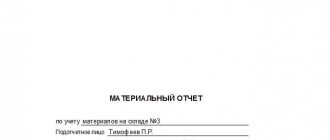Job description
The job description outlines what the responsibilities of a clerk in an organization are. It is approved on the basis of the Labor Code of the Russian Federation dated December 30, 2001 No. 197-FZ (as amended on August 2, 2019) and the Qualification Directory of Positions of Managers, Specialists and Other Employees, approved by Resolution of the Ministry of Labor of Russia dated August 21, 1998 No. 37. The directory sets out the requirements:
- what are the responsibilities of the clerk;
- to the knowledge that a clerk needs to have;
- to qualification.
The job description is developed for each profession independently by the employer, taking into account the specifics of production and consists of five sections:
- General provisions.
- Functions.
- Responsibilities of an office management specialist.
- Rights.
- Responsibility.
https://youtu.be/JqOfwVSXjT4
What should a clerk's job description contain: examples and sample documents
Reading time: 4 minutes(s)
The most important condition for official employment of any Russian is to study and sign the job description - the most important document reflecting the functional responsibilities of the employee.
In this article you will learn what the job description of a clerk is, and you will also find ready-made versions of this document.
How to compose: general provisions
In the “General Provisions” - the first section of the clerk’s job description - employers indicate:
- what category of workers the employee belongs to (category of technical performers);
- what kind of education he should have (primary vocational or secondary general and special specialized training according to the established program);
- what experience he should have (as a rule, without presenting requirements for experience).
It also indicates what documents the clerk must have knowledge of. As a rule, we are talking about(b):
- regulatory legal acts, regulations, instructions and other materials on record keeping;
- the main provisions of the Unified State System of Records Management;
- structure of the enterprise and its divisions;
- standards for a unified system of organizational and administrative documentation;
- the procedure for monitoring the passage of official materials and documents;
- basics of labor organization;
- rules of operation of computer equipment;
- basics of labor legislation;
- norms and regulations of labor protection, company labor regulations, fire protection, safety precautions and industrial sanitation.
The following paragraph describes what the clerk should be guided by in his work:
- current legislation of the Russian Federation;
- Charter of the organization;
- job description;
- orders and instructions from immediate management;
- Company labor regulations.
It is extremely important to indicate to whom the clerk reports (the director of the company, the head of the department, the head of the office), as well as who performs his immediate duties during absence from work (an official appointed by the head of the company in the prescribed manner).
Job responsibilities: what the clerk is entitled to and his responsibilities
The second most important section of the instructions is “Job Responsibilities”, which regulate the employee’s labor functions.
As a rule, the clerk is required to:
- reception and registration of correspondence, its redirection to the relevant structural units;
- transfer of documents for execution in accordance with management resolution, registration of registration cards;
- maintaining a file cabinet for recording the passage of documentation, monitoring its implementation, issuing the necessary certificates;
- keeping records of sent and received correspondence;
- sending completed documentation to the appropriate recipients;
- systematization and storage of documents from the current archive;
- conducting work on creating a reference apparatus, ensuring convenient and quick search for documentation;
- preparation and delivery to the archive of the organization of documentary materials completed by office work, drawing up an inventory of cases transferred to the archive;
- ensuring the safety of passing official documents;
- compliance with the principles of internal labor regulations and other local regulations of the enterprise;
- compliance with internal rules and regulations of labor protection, industrial sanitation, fire protection and safety precautions;
- ensuring order in your own workplace;
- execution of orders of immediate management (within the framework determined by the employment contract).
In the “Rights” section, it is recommended to enter the following items:
- submitting proposals for the management's consideration to improve work, as well as to bring to disciplinary and financial liability employees who have violated the established discipline;
- familiarization with the documents defining the rights and responsibilities of the employee, as well as criteria for assessing the quality of performance of his job duties;
- other rights established by current labor legislation.
The “Responsibility” section is standard in most cases and looks like this:
- for failure to perform/improper performance of job duties provided for in the job description (within the framework of the labor legislation of the Russian Federation);
- for offenses committed during work (within the limits established by the current civil, administrative and labor legislation of the Russian Federation);
- for causing material harm/damage to the organization (within the framework of the current legislation of the Russian Federation).
Clerk job description samples
For clerks working in certain organizations, the specifics of their work may differ slightly from the standard. Therefore, for clarity, we have placed several ready-made instructions below.
Standard instructions (according to professional standards)
We offer standard instructions for a clerk in an organization here: https://yadi.sk/i/P3Q7t8c83TSrwg
At school
The school has the following documents: https://yadi.sk/i/seMCb3Av3TSrxh
In preschool educational institutions (in accordance with Federal State Educational Standards)
An example of a job description for a clerk in a preschool educational institution (kindergarten): https://yadi.sk/i/Ng_jMFbR3TSs4W
Budgetary institution
You can find a document suitable for an employee of a budget institution using the following link: https://yadi.sk/i/U7gPkYUn3TSsUv
Clerk-HR officer
For HR specialists, we have posted instructions at: https://yadi.sk/d/PIH1l3Lm3TSspU
Clerk secretary
To download the document for the secretary-clerk, you need to click here: https://yadi.sk/i/I1SWqBtZ3TSsxJ
Clerk inspector
Instructions for the office clerk are offered at the link: https://yadi.sk/i/oBEINIrd3TStAy
In conclusion, I would like to advise you to conduct a thorough analysis of the job description before approving it - and then the final result of the specialist’s work will fully meet the employer’s expectations. Otherwise, any discrepancy may be challenged in court.
Did this article help you? We would be grateful for your rating:
0 0
General provisions
There are no legal requirements for the qualifications of a clerk. Usually people with secondary or higher education are hired for this job, preferably with a specialization as an economist, archivist or document specialist. The specialist is required to be able to work on a computer in basic office programs and office equipment, have at least one year of work experience, and preferably knowledge of a foreign language and business etiquette.
The clerk reports directly to the general director and is appointed to the position by his order. The presence of certain personal qualities is included in the job responsibilities for office work:
- communication skills;
- responsibility;
- literacy;
- patience;
- perseverance;
- attentiveness;
- self-organization.
Functions
The functional responsibilities of a clerk at an enterprise are regulated by professional standards approved by Order of the Ministry of Labor and Social Protection of the Russian Federation dated May 6, 2015 No. 276n. The standard is necessary for a clear understanding of the requirements for the profession, so that conflict situations do not arise regarding excessive demands on the employee:
- organizational and documentation support for the organization’s activities;
- organizational, documentation and information support for the functioning of the head of the organization;
- organization of work with documents and ongoing storage of documents;
- preparation and execution of management documentation;
- organizing case processing for subsequent storage;
- organization of work and storage of documents in the manager’s reception area.
Main job responsibilities of a clerk
A clerk is a very important position in any enterprise. The organization of document flow in the organization depends on his literacy and efficiency. And this affects the work of structural units and the timely adoption of important decisions by management.
Where does a clerk work?
Clerk is a profession in demand. Almost no large company can do without this employee.
Such an employee is needed in any organization where there is a large document flow , which someone must monitor: register, sort, archive and find the necessary paper at any time.
For example, at a school, an employee is responsible for managing the affairs of all students : registration, entering information into a computer database and subsequent archiving.
very important in the courts - where the flow of documentation is simply enormous. Not a single reputable company can do without this staffing unit, be it an industrial company, a help desk, an institute, a cultural institution, a legal consultation and other institutions.
How is it different from a secretary?
At first glance, it seems that these two positions are no different from each other, but this is if we consider the responsibilities of a secretary-clerk in a small enterprise.
In large companies, these two professions are clearly separated from each other. Moreover, the staff may have more than one clerk or secretary.
To understand the difference between these workers, you need to understand what exactly each one does at the enterprise.
The word "secretary" has Latin roots, meaning "secret". That is, this is a trusted person close to the leader. The range of responsibilities is quite varied, depending on the area of activity of the organization:
- receiving and registering incoming calls. Connecting a subscriber with a department or official at the enterprise;
- organizing work in the manager's reception area: recording and receiving visitors;
- regulation of the manager’s work schedule: planning and reminders of meetings, organizing meetings, etc.;
- service to the boss: serving tea, coffee, sandwiches, etc.;
- Carrying out minor assignments from the director;
- monitoring the director’s availability of stationery and other things necessary for work;
- organization of business trips: booking tickets and hotel rooms, checking the availability and proper completion of accompanying documents.
In many organizations, the secretary is an assistant to the manager . The position is very multifunctional, unlike a clerk who only deals with “paper” work .
The secretary constantly communicates with people, the clerk communicates with documents. Any secretary can deal with correspondence and registration of incoming or outgoing documentation, but this is not his main responsibility; it will only complement the range of other functions.
Main responsibilities
Very often, business managers prefer to hire one employee who will combine the functions of a secretary and a clerk. This is a completely wrong approach to organizing work, acceptable only for very small companies .
The clerk must first of all monitor and control all document flows of the enterprise . It will be difficult to fully perform such a function if you have to endlessly sit on the phone, run errands for the director and make coffee for him and the office staff.
A qualified employee not only monitors business correspondence at the enterprise, but also maintains its archive.
Depending on the specifics of the enterprise’s activities, the clerk may have a varied range of responsibilities:
- Registration of incoming and outgoing business correspondence;
- Sorting correspondence by importance and departments;
- Conducting constructive correspondence;
- Creation of a document base of the enterprise;
- Maintaining a paper and electronic register;
- Monitoring the timely execution of instructions assigned in documents;
- After the director’s resolution, communication of information to structural divisions;
- Issuing certificates or copies of documents in accordance with incoming requests;
- Distribution of business correspondence to recipients;
- Ensuring the storage of documents, systematizing them to optimize search;
- Archiving.
The larger the organization, the more structural divisions it has, the more necessary the organization of office work is. Corporations may have a whole department of employees engaged in “paper” work in different areas, therefore, their responsibilities will be different.
For example, in companies with foreign partners, the duties of a clerk may include translation of incoming correspondence .
Requirements for an employee
Gone are the days when the profession of a clerk or secretary was considered a low-skilled position that did not require special skills, knowledge and abilities. Now this is a responsible position for which candidates with higher education are most often selected.
The normal functioning of the organization depends on the qualified work of the employee, so the employee must have the following personal qualities:
- excellent memory;
- meticulousness and patience;
- accuracy;
- self-control;
- business communication style;
- self-organization and self-discipline;
- pedantry;
- high concentration of attention;
- emotional stability;
- high level of responsibility.
In addition to individual requirements, the employee must be subject to qualification requests:
- higher education. For reputable institutions – document management, archival science;
- Proficient use of a personal computer and office equipment;
- knowledge of proper document management: execution and registration, compilation of registers, proper storage of documents, their archiving and other skills;
- ability to establish communication links between various departments and structures, skillful communication with clients and third-party organizations;
- work experience (this requirement is not always present, but if there are several applicants for the position, previous experience is a big plus);
- knowledge of languages (similar requests are made by companies with foreign capital investment or conducting foreign economic activities).
The clerk is obliged to know and apply in his work the rules, instructions, regulatory legal acts governing the organization of document flow in the enterprise. He must be guided by the provisions of the state office structure.
Important provisions of the job description
When starting a job, each employee must have initial knowledge of the responsibilities assigned to him . Such information is taken from the job description. This is a document that describes in detail all the functional duties of the employee, his responsibility for their improper performance and rights.
Of course, the manager may not sign this document with the worker, but then he will not be able to demand strict execution of a certain set of tasks, much less punish or fine for failure to complete certain tasks.
Therefore, a job description is an important document, both for the head of the organization and for its employees.
Standard instructions include the following points:
- General provisions. This paragraph defines that a clerk is a category of technical performers. Then it clearly states the qualification requirements for the position held, the specifics of appointment and removal from position. Direct subordination of the employee. What knowledge and skills should he be guided by when carrying out his activities? A very important point is the clause on assigning the duties of a clerk during his absence to another employee.
- Functional responsibilities of the employee.
- Employee rights. An employee has the right to participate in the development of projects related to his field of activity, make proposals for improving his duties, and, with the consent of management, involve other employees in the work.
- Responsibility. For failure to perform or improper performance of his duties, the clerk will be held liable in accordance with current legislation and regulations adopted by the enterprise.
- The final provisions determine the date of signing the document and its preparation in two copies having equal legal force.
Clerk is a prestigious profession. Now many higher educational institutions are opening courses in the specialty “Documentation and Archival Studies”. This suggests that the specialty is in demand. Depending on work experience and qualifications, the salary of such a specialist can be at the level of a middle or even senior manager.
The video contains interesting and detailed information about document management in office work, which is the direct responsibility of this employee.
Responsibilities
To understand who a clerk is and what responsibilities he has at work, you need to refer to the job description. Each employer has the opportunity to independently develop job descriptions for employees, which depend on the size of the company and the specifics of production. In small companies that cannot afford a large staff of workers, the clerk combines several positions at the same time:
- Office Manager;
- assistant secretary;
- secretary-clerk;
- assistant manager
For example, what are the responsibilities of a clerical secretary:
- meet and see off visitors;
- answer calls;
- provide office supplies and keep records of expenses for office needs;
- organize coffee breaks and lunches for employees and managers;
- organize negotiations, meetings and conferences.
In large companies, the position of a clerk implies a separate staffing position, but there the volume and flow of document flow is much higher. What are the responsibilities of office work can be seen using the example of GOST R 7.0.97-2016:
- creation, receipt, design of a document at the initial stage;
- document flow, which means the beginning of the movement of a document through authorities, its accounting, registration and formation;
- archiving, which implies organizing storage and maintaining an archive.
General information
Typical job description for a secretary
First, let's look at what universal, classic job responsibilities of a secretary exist. Previously, there were only secretaries-typists who typed business letters. Now the responsibilities of secretaries have greatly increased.
They boil down to the following recommendations that must be followed:
— ensuring the administrative activities of management;
— receiving and distributing correspondence among departments, processing, preparing and sending response letters, if necessary;
— organization of office work, collection and processing of necessary information for management;
— receiving various documents from employees of different departments to transfer them to management for review or signature;
— organizing planning sessions (meetings) and keeping minutes of these events;
— organizing the purchase or actual purchase of office supplies and other necessary products to ensure the normal work activities of employees;
— organizing the reception of employees and other visitors by management;
- Carrying out some other assignments.
Knowledge requirements
An employee's responsibilities may differ slightly from those presented above, depending on his main specialization. But certain knowledge and skills will never be superfluous for a person holding this position.
Such knowledge includes the following:
— basics of administrative and labor legislation;
— basic norms of business etiquette and ethics;
— basics of office work;
— rules for working with various office equipment, reception and negotiation equipment, as well as computer equipment;
— safety precautions;
- occupational Safety and Health;
— basic knowledge of conducting business correspondence.
REFERENCE! In addition to the above, in order for the secretary to perform his job duties, he will need knowledge of the internal fundamentals of the enterprise, its work schedule, regulatory documents and other important information.
Responsibilities of an Assistant Manager
The position of assistant manager is adjacent to the position of secretary; their responsibilities are practically no different. The assistant manager also receives and transmits correspondence, copies and archives documents, brings the director’s orders to the attention of responsible persons, carries out office work, and purchases necessary goods.
In addition, the person holding this position must:
— provide managerial and administrative activities;
— collect and process, as well as provide information at the request of department heads;
- organize telephone and personal conversations;
- drafting business letters;
- create conditions for increasing the efficiency of management and some other tasks.
REFERENCE! Basically, a person who has a higher or secondary vocational education can become a secretary. In the second case, at least two years of work experience in the specialty is also required.
Rights
Rights are what an employee has to perform immediate duties. The general job responsibilities of a clerk include the rights to:
- make proposals to higher management to optimize labor and improve working conditions;
- receive full information about working conditions and demand fulfillment of all agreements and rights;
- sign documents within the scope of their competence;
- make decisions within their competence;
- demand from management assistance and assistance in the performance of duties.
Responsibility
Job responsibilities in office work imply that the employee bears disciplinary, administrative and sometimes criminal liability:
- for exceeding his powers;
- causing losses to the enterprise, damage to property and causing harm - on the basis of current legislation;
- violation of safety regulations and labor discipline;
- disclosure of trade secrets;
- improper performance of work functions in the manner established by current labor legislation.










